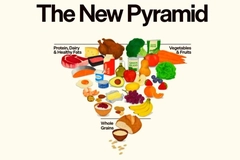LeafWorks expands DNA testing portfolio to tackle adulteration in botanicals and ensure quality

Botanical genomics and testing company LeafWorks has expanded its DNA-based species identification services to include the 75 most widely used herbs and fungi in dietary supplements, herbal medicine, cosmetics, and foods, as well as common product-specific adulterants. The new offering aims to enhance product quality standards across the supply chain and address long-standing identification challenges in the industry.
LeafWorks says these tests offer manufacturers and sourcing managers an accurate and scalable way to verify botanical identity, for either single-species validation or identifying multiple plant and fungal components in complex formulations.
The US-based company notes that DNA testing options remain scarce. Therefore, its expansion marks a significant advancement in botanical identification capabilities.
“The natural products industry has long faced significant gaps in robust identification testing for challenging herbs and complex formulations. Our genetic approach fills those gaps,” says Kerin Law, Ph.D., chief scientific officer at LeafWorks.
LeafWorks now offers two formats for species identification — Botanical and Adulteration DNA ID tests. These services help manufacturers confirm whether a sample contains a specific species and detect common adulterants or substitutions used in natural products, which may go undetected by visual or chemistry-based methods.
The company says its adulteration tests also cover adulterants in many food products, such as peanuts, rice, and wheat.
Tackling botanical adulteration
Whether intentional or the result of complex supply chains, adulteration is a persistent issue in the global botanical trade. Last year, the US Botanical Adulterants Prevention Program revealed adulteration rates of between 16.5% and 56.7% for five popular botanicals in a review of 78 publications and 2,995 samples.
To address this issue, LeafWorks says its DNA-based testing helps manufacturers safeguard product integrity, ensure label accuracy, reduce regulatory risks, and maintain compliance.
The tests are validated against a global genomic library that includes thousands of authenticated botanical reference materials, closely related sister species, and known adulterants. These sequencing-based tests meet requirements for third-party identity verification, ensuring full traceability throughout the supply chain.
“DNA cannot be masked or changed. If it’s present, even at trace levels, we will find and accurately identify it using our industry-leading genomic database that took years to build with thousands of reference materials,” explains Law. “Our clients need reliable answers, and this testing delivers exactly that.”
 LeafWorks expands DNA testing for accurate species ID and adulteration detection in key botanicals used in natural products.The company explains that methods like microscopy or macroscopy often struggle to identify ingredients in highly processed or derived materials, and chemistry-based tests can miss ingredients with overlapping profiles or masked compounds.
LeafWorks expands DNA testing for accurate species ID and adulteration detection in key botanicals used in natural products.The company explains that methods like microscopy or macroscopy often struggle to identify ingredients in highly processed or derived materials, and chemistry-based tests can miss ingredients with overlapping profiles or masked compounds.
In contrast to those traditional methods, DNA analysis targets the genetic code itself, providing a more accurate and robust solution.
DNA accuracy
DNA is especially effective for identifying complex, blended products with higher misidentification risks as it remains stable and unaffected by cultivation conditions or the combination of multiple ingredients.
“DNA is built for testing identity. Development of orthogonal DNA-based identification methods that look at entire genomes and move beyond problematic barcodes or marker types will add a depth of certainty currently lacking in many species,” says Eleanor Kuntz, Ph.D., CEO of LeafWorks.
LeafWorks’ DNA database allows the company to ensure high accuracy by focusing on species-specific markers across the genome. Its investment in proprietary databases and advanced bioinformatics tools enables a rapid and precise identification of species across thousands of samples simultaneously.
The company integrates its genomic science into routine quality control workflows to offer manufacturers actionable data to support regulatory compliance and consumer trust. With these tests, quality assurance and control teams can verify ingredient identity, guide product development, assess purity, and provide sourcing managers with confidence when purchasing global shipments.
“Having reliable testing options is critical for satisfying label requirements such as 21 CFR 111, and designing a robust test takes careful genomic R&D,” says Laura Klein, Ph.D., director of Herbal Research at LeafWorks.
Title 21 of the Code of Federal Regulations (CFR) includes rules of the US FDA. 21 CFR 111 covers Current Good Manufacturing Practices in the manufacturing, packaging, labeling, or holding operations of dietary supplements.


















